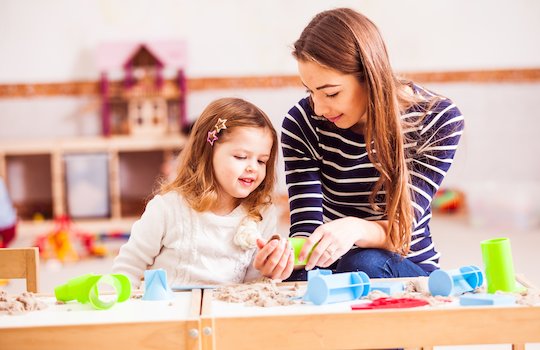Getting to Know You: Baseline Assessments
Add to My Folder
Starting a new reception class can be really daunting for young children, everything and everybody is new around them and having to carry out baseline assessments while trying to settle in and getting to know your new children can be a challenge for practitioners. When baseline assessments can fit in to the normal practice of settling, interacting and engaging with children, it is more manageable. Why not try and combine opportunities to gather baseline data and opportunities for learning that children can relate to, by creating a familiar ‘home environment’ in your setting and inspire and record learning with these suggested activities and Baseline Assessment record templates?

Activities:
- Maths
- Communication and Language
- Physical Development
- Literacy
- Expressive Arts and Design
- Understanding the World
- Personal Emotional and Social Development
- Six weeks Baseline Assessment templates
- Points to consider for Baseline Assessment…
Maths
- Have a place in your ‘home setting’ set up for a birthday party. Set up numbered cups, saucers and cutlery and invite children to match together the corresponding numerals.
- Have enough food items to encourage play cooking. For example, pasta shapes, play food and play dough.
- Create recipe books that invite children to read the numerals. Can they recognise the quantities needed to make for example a tomato play dough pizza?
- Have available floating balloons with numerals on them. Encourage counting, colour recognition and number ordering.
- Have presents in different sized boxes and containers that will encourage children to explore size and positional language.
- Have wrapping paper of different sizes and invite the children to wrap the boxes available. Encourage skills of problem solving as they figure out what sized wrapping paper will best wrap the different boxes.
- Invite children to create their own curtains, table cloths or wrapping paper with shapes and paint printing. Encourage the children to explore repeating pattern.
Related Learning Outcomes
Number 40-60 months:
- Can recognise some numerals of personal significance.
- Can recognise numerals one to five.
- Can count up to three or four objects by saying one number name for each item.
- Can count actions or objects which cannot be moved.
- Can count objects to ten, and beginning to count beyond ten.
- Counts out up to six objects from a larger group.
- Can select the correct numeral to represent one to five, then one to ten objects.
- Can count an irregular arrangement of up to ten objects.
- Can estimate how many objects they can see and checks by counting them.
- Can use the language of ‘more’ and ‘fewer’ to compare two sets of objects.
- Can find the total number of items in two groups by counting all of them.
- Can say the number that is one more than a given number.
- Can find one more or one less from a group of up to five objects, then ten objects.
- In practical activities and discussion, begins to use the vocabulary involved in adding and subtracting.
- Can record, using marks that they can interpret and explain.
Already a member? Sign in below.
Published 1 October 2018
Reviews
You need to be signed in to place a review.
